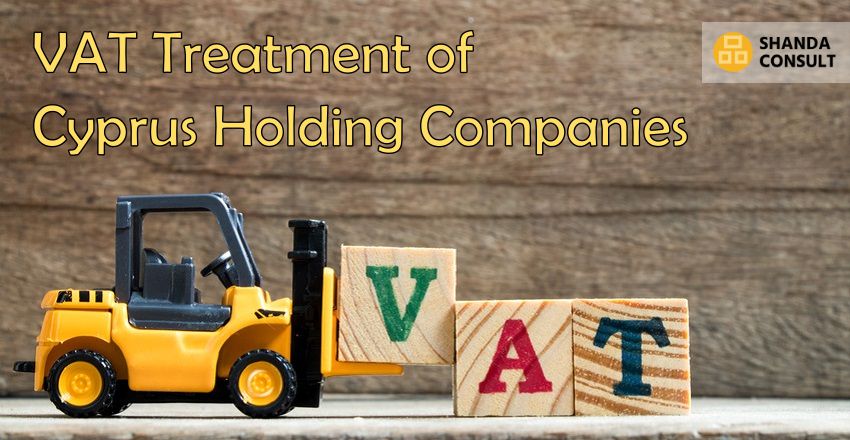VAT Interpretative Circular 222 – Holding Companies
On 9 January 2018, the Interpretative Circular 222 has been announced by the Cyprus Tax Department explaining the VAT treatment of holding companies. The Circular provides guidance on the interaction between holding companies and VAT based on existing ECJ case law (Court of Justice of the European Union).

VAT treatment of Cyprus holding companies in brief
The Circular states that the mere acquisition and holding of shares does not comprise an economic activity for VAT purposes as per the Article 3 of the VAT Act (Law 95/1/2000), as amended, and as per the relevant case-law of the ECJ. The mere holding of shares in other undertakings does not constitute an exploitation of goods for the purpose of obtaining income, since the potential dividend, derives only from the ownership.
Direct and Indirect Involvement in the management of holdings and subsidiaries
However, the above does not apply where the holding is accompanied by direct or indirect involvement in the management of the companies which shares are acquired, without prejudice to the rights of the holder of such shares as a shareholder or partner. The extent to which a holding company is involved in the management of the companies in which it acquires shares has not been determined by criteria in any ECJ ruling, this cannot be determined in advance but is a subject of case-by-case examination.
Indicatively, in the ordinary sense of the term “management” or “administration” any person is considered to provide such services when managing or coordinating affairs, steering events in a particular direction, organizing, decision making, etc. These actions can be taken by a legal entity which holds shares (directly) or by any other person who belongs to the legal entity and hold shares (indirectly). It should also be noted that the involvement in the management of the subsidiary companies should also be substantiated by factual evidence (board resolutions, Minutes of meetings management agreements etc.)
The difference between the direct and indirect involvement as mentioned above is that in direct involvement the members of the Board of Directors (BoD) of the Holding company are also members of the BoD of the subsidiary. In this case the Holding company has the power to affect the decisions of the subsidiary. Whereas in the indirect involvement, there is no director’s involvement but the decisions of the subsidiary may be influenced in another way, like for example when directors of a fully controlled related company are members of the subsidiary’s BoD.
A holding company that controls some other legal entities may influence decisions i.e. investing of the person holding the majority of the shares. In such a case and if the facts substantiate it, it can be considered that the dividend from the shares is a consideration (in return) for the management services provided. It should also be noted that the objective of acquiring shares in companies is not always the control of these companies as stated in relevant law, a company may hold shares in another company for the sole purpose of receiving a dividend without being involved in its management.
In that regard, the involvement of a holding company in the management of companies constitutes an economic activity, and is subject to VAT, such as administrative, financial, commercial and technical services by the holding company to its subsidiaries. Τhe holding company should have the human and technical resources to be able to provide such services.
However, the holding company may acquire such services from third parties and subsequently resell them. In such a case, under the VAT legislation, the taxable person is entitled to deduct input tax to the extent that the goods and services are used for taxable transactions.
In case, the holding company purchases services from third parties such as legal, administrative, promotional services etc., it can only deduct the VAT to the extent that the holding company had used those services of supplying taxable goods and services. The holding company cannot deduct the VAT on these services when they have been used or will be used in the interest of other subsidiaries.
If, however, the holding company exercises both economic and non-economic activities, the VAT input should be allocated in accordance with the VAT input rules.